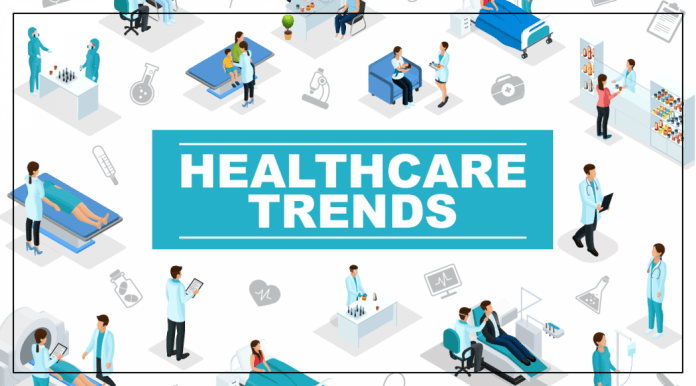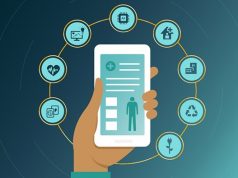Natural Language Processing (NLP) has proven to be a game changer for the healthcare industry. Using NLP solutions, healthcare professionals and pharmaceutical companies can make informed decisions, deliver personalized healthcare, and create targeted medicines.
All these advantages are based on the information and knowledge collected from several sources. From summaries, reports, physician case notes, prescriptions, imagining, and pathology reports, data is ever-flowing in this domain. With NLP, we can structure the information in the right narrative and gain a better understanding of the data.
Let’s check out the top use cases of NLP in the healthcare and pharmaceutical industry.
Importance of NLP in Healthcare and Pharma
The NLP technology makes it easier to interpret and understand human speech. This technology allows humans to communicate with humans just as they do with each other. For the healthcare industry, utilizing NLP means a better understanding of the text, images, and videos generated in all sorts of operations.
NLP has led to advances in the healthcare and pharmaceutical industry by unlocking new information quickly and accurately. It can structure the information and make it easier to understand for the users. As a result, NLP is benefiting the healthcare industry with improvised clinical documentation, accelerating trial matching, and supporting clinical decisions.
NLP Applications in Pharma and Healthcare
Healthcare and pharmaceutical organizations can benefit from two types of capabilities of NLP technology. These are comprehension of human speech and text to understand its meaning and to unlock insights from unstructured data from databases and documents.
The following applications can be organized into one of these two categories.
Clinical Assertion Modeling
Assessing a patient’s condition based on the information provided can be improved with NLP. NLP solutions can assess a patient’s history with an objective and analytical approach to finding frequent symptoms. It can lead to a better understanding of the condition to deliver more accurate and precise treatment.
Clinicians use assertion modeling to determine whether the problem is present, lacking, or predicated. NLP-based clinical assertion helps fast-track the process to determine the specific assertion category of every medical condition.
Drug Reaction Detection
One of the life-saving NLP use cases in the pharmaceutical industry is identifying the reaction of certain drugs. Adverse Drug Event (SDE) detection with NLP and AI-based models assesses the reaction of drugs based on data, transcripts, and literature.
NLP solutions extract data to build robust dashboards and analytical reports for different personas. As a result, the adverse effects that can happen from a prolonged use of medicines can be prevented.
Drug Development
Developing new drugs is a complex process, taking a lot of effort and time. NLP-based solutions can help with faster drug development as they can analyze a variety of compounds to find insights for new drug development.
NLP has the capability to extract and process unstructured data from several sources and databases. Using this information it can identify new compounds for medicines and provide actionable data for every stage of drug development.
Clinical Data De-Identification
Protecting a patient’s sensitive information is pivotal for healthcare institutions and pharmaceutical companies. Redacting every line and bit of information is a cumbersome process. But this is where NLP can be used to protect sensitive patient health information.
Patient information and documents can be exchanged in several hands, even outside the healthcare system. Hence, NLP can prevent exposing a patient’s personal and sensitive information to entities that can exploit that information.
Clinical Code Assigning
The ICD-10-CM is a repository referred to by US-based healthcare institutions to access mortality data. The ICD-10 is used to code and classify mortality data from death certificates. Hospitals use NLP to extract information about different health conditions and diagnoses from patient records to assign the ICD-10-CM code.
Using this repository, doctors can gain access to healthcare statistics and outcomes for a particular condition. As a result, they can plan better and modified treatment plans.
Clinical Trial Matching
NLP can make clinical trial matching a seamless and simple process for pharmaceutical and healthcare institutions. It can automate the clinical trial matching process by quickly assessing the subject’s medical information against the clinical drug, therapy, or treatment.
NLP solutions can generate patient participation criteria or find suitable subjects from the existing database. Plus, NLP can generate a list of the most suitable questions.
Medical Imaging Annotation
Medical image captioning is, again, a tedious and complicated task. However, NLP can perform the same task with better speed and higher accuracy. NLP and Computer Vision technologies are used to understand a medical image. It can be an X-ray, an MRI scan, a CT scan, an Ultrasound, or any other image-based medical information file.
NLP solutions employed for this process can add captions to the image and highlight the problems. Moreover, we can get exact findings, indications, and severity of the condition.
Conclusion
The utilization of Natural Language Processing (NLP) in the healthcare and pharmaceutical industry is heavily based on the analysis of unstructured data. With relevant information, healthcare organizations can extract several advantages and deliver better healthcare services to patients.
At Shaip, we help healthcare organizations gain actionable insights by unlocking insights from unstructured data. Our solution is built to simplify data analysis and help you deliver personalized care services to the patients.
Author Bio
Vatsal Ghiya is a serial entrepreneur with more than 20 years of experience in healthcare AI software and services. He is the CEO and co-founder of Shaip, which enables the on-demand scaling of our platform, processes, and people for companies with the most demanding machine learning and artificial intelligence initiatives.
Linkedin: https://www.linkedin.com/in/vatsal-ghiya-4191855/
Follow Technoroll for more!




